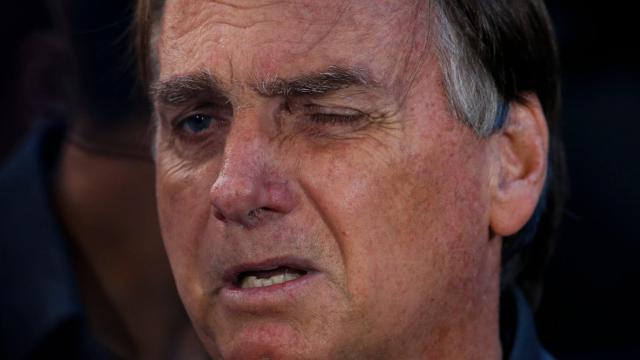Brazilian president and hiccuping body horror exhibit Jair Bolsonaro’s gamble to force social media companies not to delete his or his supporters’ awful posts has failed.
According to the New York Times, the Brazil Senate and Supreme Court have both taken moves to prevent Bolsonaro’s order that would slap companies like Facebook, Twitter, and YouTube with huge fines if they dare to delete any content that falls outside a narrow range of categories like nudity, incitement, or copyright infringement. The provisional measure would have also allowed Brazil’s federal government to demand companies restore content in those categories, required social media firms to seek court orders to delete anything else, and imposed similar restrictions on the deletion of accounts.
Bolsonaro, whose presidency has plummeted into catastrophe after his administration’s disastrous handling of the coronavirus pandemic, accelerated destruction of the Amazon rainforest, and numerous corruption scandals, is deeply unpopular in the polls ahead of next year’s election. Propaganda is at the core of the president’s 2022 strategy and the order was transparently designed to prevent social media firms from interfering with his ability to spread lies that the upcoming vote will be rigged, as well as coronavirus disinformation designed to distract from the nearly 600,000 estimated deaths across Brazil. Bolsonaro recently staged protests across the country in a move critics warned could result in a Jan. 6-style attempted coup, but it all ended in a de facto stalemate, with the president demonstrating his support was strong enough to remain in office but not strong enough to depose his opponents.
Bolsonaro has been locked in a bitter power struggle with Brazil’s Supreme Court, having recently backed down on a pledge to ignore its rulings, and much of the Senate, which is probing his handling of the pandemic. The Times reported that both institutions took action to prevent the order from taking effect, with the court suspending the rules and Senate President Rodrigo Pacheco shelving them. Both found that Bolsonaro overstepped his power by issuing a provisional measure because it addressed a non-urgent issue and Brazil’s Congress is debating its own internet regulations. Rio de Janeiro State University internet law professor Carlos Affonso Souza told the paper that the Senate decision effectively bars Bolsonaro from issuing any similar order until at least 2022.
“It’s a very positive sign that the Brazilian political class reacted,” Mauricio Santoro, an international relations professor at the university, told the Times. “The Brazilian leadership is finally understanding how important the internet is to political life in Brazil.” But he warned Bolsonaro “is not going to quit this fight that easily. The internet is very important to him.”
The order was unsurprisingly opposed by tech firms including Facebook, Google, and Twitter, which raised understandable concerns that it would kneecap their ability to control (or pretend to be controlling) toxic content and viral hoaxes on their networks. YouTube has previously deleted videos from Bolsonaro’s account spreading lies about the coronavirus and, according to Reuters, he recently demonetised 14 channels that Brazil’s Supreme Court said were spreading election disinformation. Brazil’s inspector general of electoral justice issued similar directives to YouTube, Twitch, Twitter, Instagram, and Facebook.
